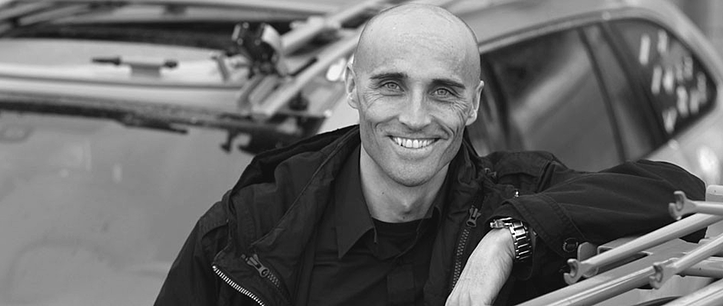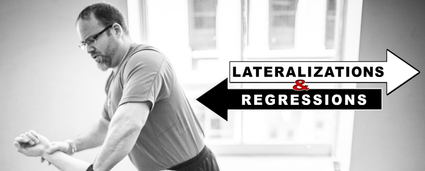
Question 1: The fine line between tapering and of course detraining is getting smaller as seasons are getting longer. With some metrics of fitness and power varying, how does one know if they are reaching a point of lost fitness in team sports? Some teams are monitoring fatigue but not managing training outside practice. What are ways to make non-specific training outside of practice a combination of both adaptation and monitoring physical abilities? Any good workouts for soccer that can help monitor power or conditioning that would be good for college and or professionals?
Iñigo Mujika: In my view, the key metric to assess where an athlete is at each point in time is performance in training and in competition. If an athlete is not performing at his or her expected level, we need to make some kind of performance-fatigue assessment. If performance is indeed declining, we should assess why this is the case, starting with exclusion criteria such as confounding illnesses. We should also assess whether there are clear errors in the athlete’s training program: insufficient training volume, intensity or frequency; excess or insufficient competition; nutritional errors; and other confounding factors such as psychological problems, social issues, travel fatigue, etc. We can of course make use of biological markers such as resting cortisol levels or maximal lactate production, but I have always believed that communication with the athlete is the most important way to assess what is going on.
Not assessing training or physical activities outside of formal team practice is equivalent to trying to make a nutritional assessment including only the foods ingested by an athlete at team meals, but ignoring what they eat once they are on their own. We need to know what the athlete does outside of formal practice, as this may have a huge impact on the way they adapt to training. All physical training should be included in the quantification of an athlete’s activity profile, and this can be done with the use of physical activity questionnaires, or by means of technological tools such as heart rate monitors or accelerometers.
In terms of tests or workouts that may help monitor power or conditioning, I am sure that every fitness coach has his or her own method, which could be a reference training set, a countermovement jump, a repeated effort test, a maximal or submaximal Yo-Yo Intermittent Recovery Test, etc. The most important thing is that these reference workouts or tests should be carried out in standardized conditions, be relevant to the sport, valid, reliable and sensitive to changes in an athlete’s fitness level.
Question 2: Small Sided Games are popular ways to work on tactical and technical areas, but you mentioned years ago that longer sprints may be important to prepare for injury reduction. Linear sprints being the most common way of scoring as well as the most common cause of hamstring pulls, what can sport science do to help the medical and team coach with practices during the season by integrating a balance between skill and general training?
Iñigo Mujika: Small sided games can be very effective training exercises. As you say, they allow to work on tactical and technical aspects of the game, and they can also be effective at improving players’ fitness. Nevertheless, I consider that basing fitness training exclusively on small sided games is an error that is often justified by the wrong assumption that training should always be as similar as possible to the game itself. If that were the case, the best practice would simply be to play the game all the time. My philosophy is that we need to identify the factors that determine physical performance in the sport, then try to find the right training mix that includes proven methods to improve each and everyone of those factors. A soccer player, for example, requires high levels of endurance, speed, power, strength, agility, repeated sprint ability… We as coaches need to make use of the best training methods to improve each one of these qualities, and simply playing small sided games is certainly not the best possible way to achieve this. Of course we also need to be aware that the technical and tactical areas are also key to performance, and after assessing our team’s strengths and weaknesses, we need to determine the training time that will be specifically allocated to each of these areas, and the time needed to optimally integrate them to maximize each player’s contribution to the team’s overall performance. Within this framework, injury prevention is also a key aspect of daily training. In a sport like soccer, the physical qualities required from the players should be trained in conjunction with injury prevention (e.g. core training, proprioception, use of eccentric overload training of thigh muscles, dynamic stabilization through vibrations, uneven and unstable surfaces, etc.). In this respect, I believe that it is better to have your best players at 90% of their physical capacities on the pitch, than having them sidelined due to injury.
Click HERE to continue reading this interview from speedendurance.com
BSMPG 2014 Summer Seminar - Keynote Speaker Iñigo Mujika
SPONSORED BY:

Keynote Session: Tapering and Peaking for Optimal Performance
Breakout Session: Detraining following Injury
Iñigo Mujika earned Ph.D.s in Biology of Muscular Exercise (University of Saint-Etienne, France) and Physical Activity and Sport Sciences (University of The Basque Country). He is also a Level III Swimming and Triathlon Coach and coaches World Class triathletes. His main research interests in the field of applied sport science include training methods and recovery from exercise, tapering, detraining and overtraining. He has also performed extensive research on the physiological aspects associated with sports performance in professional cycling, swimming, running, rowing, tennis, football and water polo. He received research fellowships in Australia, France and South Africa, published over 90 articles in peer reviewed journals, four books and 30 book chapters, and has given 210 lectures and communications in international conferences and meetings. Iñigo was Senior Physiologist at the Australian Institute of Sport in 2003 and 2004. In 2005 he was the physiologist and trainer for the Euskaltel Euskadi professional cycling team, and between 2006 and 2008 he was Head of Research and Development at Athletic Club Bilbao professional football club. He was Physiology consultant of the Spanish Swimming Federation in the lead-up to London 2012. He is now the Head of Physiology and Training at Euskaltel Euskadi World Tour Cycling Team, Associate Editor for the International Journal of Sports Physiology and Performance, and Associate Professor at the University of the Basque Country.







